 The first chapter of this book opens with a line that perfectly describes me:
The first chapter of this book opens with a line that perfectly describes me:"Among the many dangers of being an obsessive reader is that you tend to mediate your life through books, filter your experiences through plots, so that the boundary between fiction and fact becomes porous." (p. 3)
I've been in love with books my entire life. Mama Cat read to me when I was little, up till the time I could put myself to sleep all by myself. Papa Cat says that I've never met a bookstore I didn't like. In elementary school teachers used to discourage me from taking my books outside at recess.
As I got older, and more mature in my reading, I identified with many of the characters I read about--Anne Shirley, Ramona Quimby, Encyclopedia Brown, the Baby-Sitters Club, just to name a few. Maureen Corrigan finds herself doing this throughout this book. She combines memoir with literary analysis (Corrigan is the book critic for the NPR show Fresh Air), and describes how works of literature helped her through certain times in her life.
In the first chapter, "Women's Extreme-Adventure Stories," Corrigan relates female heroines such as Jane Eyre, and authors such as the Bronte sisters, to the struggles that she and her husband had with starting a family. She went through fertility treatments, got pregnant three times, only to miscarry each time. She and her husband then went through the adoption process and became parents of a daughter from a Chinese orphanage. I empathized with Corrigan's quest to become a parent, and really felt her emotions as she wrote about this painful time in her life. However, I had trouble seeing how Jane Eyre related to it, mainly because I have no memory of reading the book. (I may have read it during high school, but am not totally sure. Obviously the book didn't leave much of an impact on me if I can't remember it).
I was better able to relate to the third and fourth chapters. The third chapter is all about marriage, dating, and courtship rituals. Corrigan tells the story of growing up in an Irish-Catholic community, and how all of her girlfriends were married by the time they were in their mid-twenties. Corrigan didn't meet her husband until she was 28; at the time she was in the middle of a Ph.D. program at the University of Pennsylvania. She expresses her frustration at real-life courtship rituals and how they are never the same as how they are written in books; in books, suitors and boyfriends seem to just "fall into the picture." Maybe that's why I'm still single; I keep waiting for Mr. Right to just "fall into the picture."
The fourth chapter, "What Catholic Martyr Stories Taught Me About Getting Into Heaven," really resonated with me, since I am the product of a Catholic upbringing. However, my Catholic upbringing was a lot more liberal than the upbringing Corrigan remembers. She writes about reading Karen and With Love From Karen, two books about a young woman who had cerebral palsy and was able to learn how to live independently in spite of it. Karen comes from a large Irish-Catholic family, which figures prominently in the books. Corrigan argues that Marie Killilea, the books' author and Karen's mother, is a secular martyr:
"As the Karen books illustrate, however, female martyrs often cloaked their remarkable acts of faith and courage in a mantle of lady-like humility--even as they gloried in doing ferocious battle with the sacred and profane forces of the patriarchy. Reading the Karen books as a young girl, I think I internalized some lessons about being simultaneously devout and determined, pious and self-promoting." (p. 142)
In the book's introduction, Corrigan recalls an interview she had with the English department at Columbia University. She had just earned her Ph.D. and was interviewing for an assistant professor job. One of the professors on the interview asked Corrigan about her Ph.D. dissertation: "Ms. Corrigan, does this dissertation have any methodology?" Her response? "Well, Professor, there is no method except to be very intelligent." (xxx)
There really is no methodology to this book. At times I couldn't tell when and where the chapters transitioned from memoir to literary analysis. It didn't help, either, that I never read some of the books that Corrigan describes. I had to re-read some passages at times to make sure that I didn't miss anything.
While it makes for some slow reading at times, the book does pick up occasionally, especially when she is recalling moments from her past. I really enjoyed the memoir parts the most. Sometimes, I believe, Corrigan tried too hard to relate works of literature to the memoir moments. When this method worked, it worked really well. When it didn't, the reading wasn't as good.
If anything, this book made me reflect on the overall effect that books have had on my life. I can still remember where I was physically and mentally whenever I take a book out of my bookcase or my library. In addition to remembering the plot, I also remember a portion of myself. Whenever I read, I become a part of the story, an eyewitness to the action. I open the covers and I'm transported to another place and time. I close the covers and I'm back to being me again.
I realize that that's a rare gift.
And I realize how lucky I am to have it.
This is the latest entry in my 100+ Reading Challenge, my Support Your Local Library Challenge, as well as my Dewey Decimal Challenge. Click on the buttons in the sidebars for archived lists of all my reads!




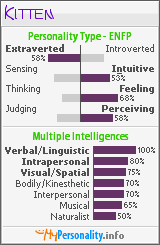





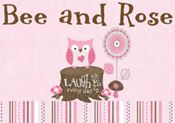


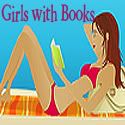






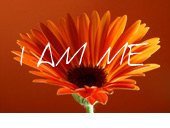






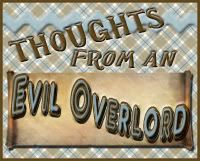






2 comments:
hmmmm. interesting. it is amazing how much books can shape our lives and our memories. i have some books that i have read over and over again, and i feel like i should re-read many because they aren't fresh enough in my head any longer. it is kind of a battle between reading what i know is great and trying to find new material that might be great. sort of like deciding what to eat in a restaurant -- go with tried and true or try something new?
boy, am i babbling. sorry!
I agree with you that books about reading almost only work when you can relate to some of the books they've read. And having just recently read Jane Eyre, I don't really see a connection other than she was an orphan. Good review!
Post a Comment